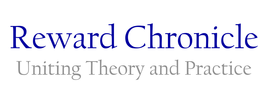|
Short-term bonuses have become prevalent in the workplace, with companies seeing them as valuable tools in engaging and motivating employees. A study in the high-tech manufacturing sector, examined the role of three types of bonuses (cash, family meal voucher, and verbal reward) in employee performance and absenteeism. All bonus types were found to increase performance and decrease absenteeism rates, although key differences in effects were found across the three types of bonuses.
Key Topics: Non-monetary rewards; Short-term bonuses; Employee performance; Absenteeism
Title of Reviewed Article: It’s (Not) All About the Jacksons: Testing Different Types of Short-Term Bonuses in the Field
Researchers: Liad Bareket-Bojmel (Intel Corporation), Guy Hochman, and Dan Ariely (Duke University). Publication: Journal of Management, 2017, Vol. 43 No. 2, pp. 534 – 554. __________________________________________________________________________ Setting the Scene Short-term performance-based bonuses are used in many companies, with WorldatWork estimating that up to 80% of US companies use them in some form (WorldatWork, 2014). They are generally used in the belief that they can motivate employees to perform better, which in turn is expected to improve company performance. Such bonuses typically measure performance over a 1 day to one year timeframe (Grigoriadis & Bussin, 2007). There is considerable research supporting the link between performance and short-term bonuses (e.g. Cameron, Banko, & Pierce, 2001; Stajkovic & Luthans, 2001). Although, when it comes to low-magnitude (low-value) short-term bonuses, the results are mixed, with some research suggesting that awarding small bonuses may lead to a reduction in performance (Frey & Jegen, 2001; Heyman & Ariely, 2004), and that such bonuses negatively impact intrinsic motivation (Bonner & Sprinkle, 2002). However, small-magnitude bonuses, on which this study focuses, can be given in various forms, such as cash, vouchers, and verbal feedback, which allows for such bonuses to impact performance in different ways. For example, some studies have indicated that awarding bonuses in forms that associate them with more tangible resources (e.g. vouchers or gift cards) can have a positive effect on performance (e.g. Spiller, 2011). Similarly, verbal reward has been shown to increase performance in employees, while also serving as a strong intrinsic motivator (Luthans & Stajkovic, 1999; Peterson & Luthans, 2006). To further examine this area, the researchers put forward the following hypotheses: Hypothesis 1 – “Productivity will increase when short-term bonuses are introduced.” Hypothesis 2 – “The effectiveness of short-term bonuses should increase as bonuses become less fungible. Specifically, verbal rewards should have the strongest effect on productivity and cash should have the weakest effect.” Hypothesis 3a – “Once the bonuses are administered (and performance is no longer incentivized), productivity will decrease.” Hypothesis 3b – “Even after the bonuses are administered, productivity will remain high.” Hypothesis 4 – “Monetary short-term bonuses will have a negative effect on productivity after the bonuses have been administered. This negative effect is expected to be mitigated for verbal rewards and when employees have control over the type of bonus that they receive.” Hypothesis 5 – “Absenteeism will decrease during the initiation of the short-term bonuses program. This positive effect of the bonuses on employees’ withdrawal behavior will persist after the incentive plan ends.” How the research was conducted This study examined the effect of short-term bonus plans on productivity and absenteeism at an Israeli semiconductor factory of a large global technological company. 156 technician employees took part in the study, which was carried out over a 5-week period in 2012. The researchers examined the effects of three short-term bonus types, namely, financial reward (cash, equivalent to approximately US$25), a pizza meal voucher (of the same value as the financial reward), and a verbal reward (positive feedback from senior management). Based on individual performance against predefined goals, employees received bonuses in addition to their salary. Goals involved the achievement of both quality and quantity targets. Employees were assigned to one of these three bonus plans, and also a forth condition in which employees could choose between cash and the pizza voucher. Each week, employees were placed in a different bonus condition, thus, all employees had the opportunity to receive all bonus types over the course of the study. Bonuses were awarded on Day 2 of each work week, based on the individual performance level of Day 1 only; as such the incentive plans effectively had a 1-day lifespan. Attendance data was also collected in order to examine the effect of the bonus plans on absenteeism. Key Research Findings During the study’s 5-week period, 207 bonuses were awarded. 54% of employees received a financial reward, 51% were awarded a pizza meal voucher, 55% received a verbal reward, while 47% of employees received the choice of a financial reward or a pizza meal voucher. 95% of employees performed above their baseline performance level at some point and were awarded at least one bonus during the period. Productivity was increased by 5.7% during the 5-week period, indicating that short-term bonuses had a general positive effect on productivity, and as such Hypothesis 1 was supported by the results. Performance increased by 4.6 - 6.7% during the study. Statistical analysis found no significant difference in performance between different bonus types, and as such Hypothesis 2 was not supported. Hypotheses 3a and 3b were supported by the results. Productivity in days 2 – 4 of the work week compared to day 1, in which performance was bonus eligible, decreased by 8.1%. Performance also decreased by 2.2% against baseline productivity as recorded outside of the 5-week study period. Hypothesis 4 was also supported; with the results showing that financial bonuses had a negative effect on performance following the bonus eligible period had passed. Performance decreased by 12.2% under the financial reward condition, 8.7% under the pizza meal condition, 5.9% under the verbal reward condition, and 5.9% under the choice condition. Absenteeism decreased from 15.96 sick hours per month to 4.83 during the 5-week period, thus supporting Hypothesis 5. Results Commentary The results indicate that short-term bonuses increased employee performance, which is consistent with prior research on performance-based rewards (Cameron et al., 2001; Jenkins et al., 1998). While contrary to expectations, no significant difference was found between reward types and performance, which highlights the important role that non-monetary rewards can play in performance, compared to the more traditional monetary rewards. A significant drop in performance was found following the bonus eligible periods, suggesting that once this external motivator is removed that employees are less motivated to perform. Alternatively, these results may indicate that employees focused on the bonus eligible periods and preserved their energies in the interim between bonus eligible periods in order to maximize their efforts towards receiving bonus. Absenteeism was also found to reduce during the study period, and interestingly, this trend continued after the study period. These results further indicate the importance that employees placed on receiving bonuses and maximizing their chances of receiving one by being present in work, and furthermore that short-term bonuses can serve to increase performance by reducing absenteeism. Organizational and Reward Implications This study indicates that even small magnitude incentives, namely those with low monetary value or no monetary value can have a motivating effect on employees, leading to greater employee performance. This finding is important for companies as it highlights that rewards do not have to have large monetary values in order to be effective, and as the results relating to verbal reward indicate, rewards do not necessarily need to have any monetary value in order to be effective. The results also indicate that small magnitude incentives can have a positive effect on employee absenteeism levels, which were found to decrease during the bonus period and also remained lower following the bonus period. This suggests that companies looking to address absenteeism issues may benefit from the introduction of small magnitude incentives, which should reduce absenteeism as well as increasing performance. Final Thoughts This study provides insight into the important role that small magnitude rewards can play in both employee performance and absenteeism. While the results provide useful guidance for companies, the fact that bonuses in this study were administered over a very short timeframe should be taken into account in the generalizability of the results to longer bonus periods. Future research in this area would benefit from further examination of short-term bonuses administered over a longer performance period, as well as examination of bonuses of varying values. __________________________________________________________________________ Source Article: Bareket-Bojmel, L., Hochman, G., & Ariely, D. (2017). It’s (Not) All About the Jacksons: Testing Different Types of Short-Term Bonuses in the Field. Journal of Management, 43(2), 534 – 554. Published by: Sage Publishing / Southern Management Association For further details and access to the full journal article Click Here (subscription or payment may be required). __________________________________________________________________________ References: Bonner, S. E., & Sprinkle, G. B. (2002). The effects of monetary incentives on effort and task performance: Theories, evidence, and a framework for research. Accounting, Organizations and Society, 27(4-5), 303-345. Cameron, J., Banko, K. M., & Pierce, D. W. (2001). Pervasive negative effects of rewards on intrinsic motivation: The myth continues. Behavior Analyst, 24(1), 1-44. Frey, B. S. & Jegen, R. (2001). Motivation crowding theory. Journal of Economic Surveys, 15(5), 589-611. Grigoriadis, C., & Bussin, M. (2007). Current practice with regard to short-term incentive schemes for middle managers. SA Journal of Human Resource Management, 5(1), 45-53. Heyman, J., & Ariely, D. (2004). Effort for payment: A tale of two markets. Psychological Science, 15(11), 787-793. Jenkins, G. D. Jr., Mitra, A., Gupta, N., & Shaw, J. D. (1998). Are financial incentives related to performance? A meta-analytic review of empirical research. Journal of Applied Psychology, 83(5), 777-787. Luthans, F., & Stajkovic, A. D. (1999). Reinforce for performance: The need to go beyond pay and even rewards. Academy of Management Executive, 13(1), 49-57. Peterson, S. J. & Luthans, F. (2006). The impact of financial and nonfinancial incentives on business-unit outcomes over time. Journal of Applied Psychology, 91(1), 156-165. Spiller, S. A. (2011). Opportunity cost consideration. Journal of Consumer Research, 38(4), 595-610. Stajkovic, A. D., & Luthans, F. (2001). Differential effects of incentive motivators on work performance. Academy of Management Journal, 44(3), 580-590. WorldatWork (2014). Incentive pay practices survey: Non-profit/government organizations. Retrieved from http://www.worldatwork.org/waw/adimLink?id=74764 Comments are closed.
|
|





